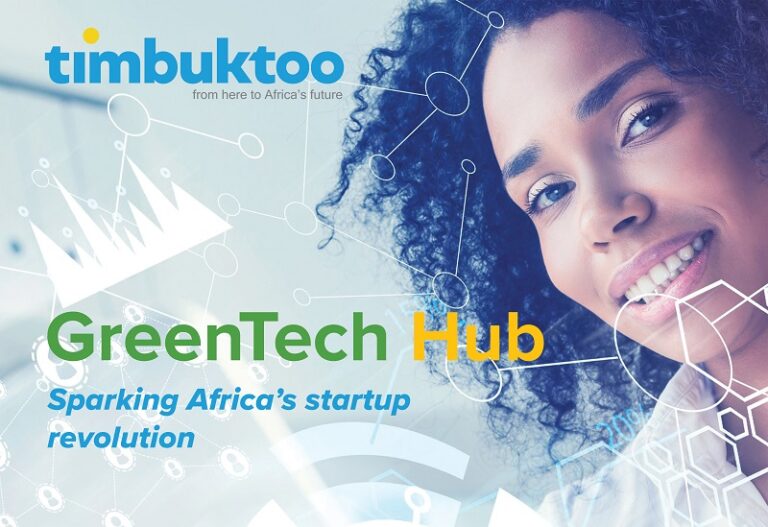Deadline: October 20, 2024
Are you a visionary GreenTech entrepreneur with a groundbreaking business solution or innovation to transform green and climate sector in Africa and committed to leveraging technology to contribute towards the Sustainable Development Goals (SDGs)? Do you have an impact driven, financially sound and scalable solution with clear growth strategy to solve Africa’s energy challenges? Apply now to join the United Nations Development Programme Timbuktoo GreenTech Hub in Kenya.
Africa faces a severe energy crisis, with many people lacking access to reliable and affordable electricity. To address critical energy deficiency and gaps that hinder the birth and growth of industries, there’s an urgent need to establish a robust Greentech hub to provide a solid foundation to accelerate green industrialization in Africa through provision of technical support, mentorship, access to funding and advocacy to support green enterprises to grow and scale their businesses. Under the flagship of the timbuktoo Greentech hub, the Energy Accelerator Programme has launched the call for applications and will focus on renewable energy technologies that can provide sustainable, accessible and decentralized solutions, reducing dependence on fossil fuels and improving energy security for communities across Africa.
The programme aims to foster startups developing groundbreaking solutions in renewable energy generation, storage, access, energy efficiency tailored to African needs to address Africa’s pressing challenges and build a more sustainable and prosperous future.
Areas of Interest
Growth stage Startups with an emphasis in the following areas are strongly encouraged:
- Energy Access Technology: Innovations that expand access to reliable and affordable energy.
- Digitalisation: Leveraging digital technologies, Distributed Ledger Technology (DLT), and the Internet of Things (IoT) to optimize energy production, distribution, and consumption.
- Energy Efficiency Technology: Technologies that improve energy usage efficiency in various sectors.
- Low Carbon & Capture Technology: Innovations that reduce carbon emissions and enhance carbon capture.
- Innovative Business Models: New business approaches that drive the adoption of clean energy solutions.
- Smart Grid: Solutions that enhance grid management, stability, and integration of renewable energy sources.
- Energy Storage: Technologies that improve the storage and distribution of energy, particularly from intermittent renewable sources.
- Clean/Renewable Energy: Advancements in the generation of clean and renewable energy.
- Sustainable Mobility: Innovations in transportation that reduce carbon emissions and promote sustainability.
- Energy Management: Tools and systems that enhance the management of energy resources, improving efficiency and sustainability.
Benefits
- Membership in the inaugural cohort of timbuktoo GreenTech Hub and entire timbuktoo ecosystem across Africa.
- Mentorship from industry experts and seasoned entrepreneurs.
- Access to technical experts and mentors for product development support.
- Access to regulatory sandbox to prototype and commercialize solutions within Kenya’s vibrant smart city.
- Access to blended financing options for enterprise growth and scale.
- Networking with potential partners, collaborators, and customers.
- Access to investor networks.
- Resources and support to accelerate growth and impact.
- Access to networks and agencies within the larger UN system.
- Access to networks and resources within the AfCTA (African Continental Free Trade Area) system.
- Impact and shape a pan-African Greentech evolution.
- Access to equity-free funding to support the startups’ growth.
Eligibility
Groundbreaking founders and innovators across Africa who are already building startups that meet the following criteria:
- Startups with founders who are nationals of an African Country.
- Startups must be legally registered and operating within Africa.
- Startups must have been in operation for a minimum of three years.
- Startups must address development challenges.
- Must be a technology-enabled solution.
- Startups must have a Minimum Viable Solution (MVS) (regulated and licensed if necessary).
- Startups should have existing corporate governance systems and accountability.
Application
For more information, visit UNDP.

